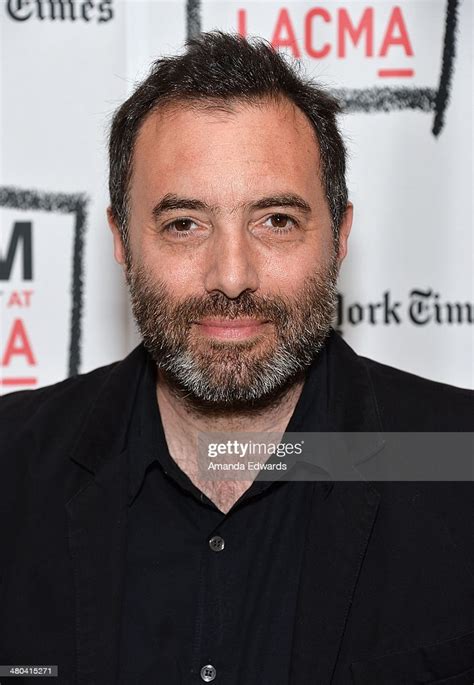A Quote by Jed Mercurio
I think that the audience is smart enough to know that just because a drama is relating to real-world parallels, it doesn't mean that its story is exactly that story.
Related Quotes
When an acting teacher tells a student 'that wasn't honest work' or 'that didn't seem real,' what does this mean? In life, we are rarely 'truthful' or 'honest' or 'real'. And characters in plays are almost never 'truthful' or 'honest' or 'real'. What exactly do teachers even mean by these words? A more useful question is: What is the story the actor was telling in their work? An actor is always telling a story. We all are telling stories, all the time. Story: that is what it is all about.
Translation is harder, believe it or not. You do have to come up with a story, and actually I'm mystified by that process. I don't exactly know how the story just comes, but it does. But in writing a story that you're inventing, versus writing a story that somebody else has made up - there's a world of difference. In translation you have to get it right, you have to be precise in what you're doing.
The Universe story is the quintessence of reality. We perceive the story. We put it in our language, the birds put it in theirs, and the trees put it in theirs. We can read the story of the Universe in the trees. Everything tells the story of the Universe. The winds tell the story, literally, not just imaginatively. The story has its imprint everywhere, and that is why it is so important to know the story. If you do not know the story, in a sense you do not know yourself; you do not know anything.
I love really exploring... you know, a cop drama for example is a great way to explore class in this country and explore, you know, really, identity in the country and who we are in a way that is extremely exciting, but it's also real, you know, it's also real people and real drama. The same with the military. I mean, a good science fiction story is also great.
I've found great virtue in two-thirds of the way into the message; right before I'm really want to nail home a point, pausing to tell a joke or to tell a light-hearted story, because I know my audience has been working with me now for 20 or 25 minutes. And if I can get them to laugh, get oxygen into their system, it wakes up those who might be sleeping, so there's something about using a story to draw people back in right before you drive home your final point. In that case I think it's real legitimate just to use a story for story's sake.
Americans are an "almost chosen people," which is meant to suggest that there are clear parallels, literal, theological and everything else, between the American story and the Old Testament story of Israel and then the broader story of the Christian church. It's OK to recognize the parallels. It's OK to invoke them. But, you have to keep that "almost" in front of the "chosen." You can't go all the way and say, "America is Israel, America is the Church." That's where I think patriotism shades into, what I call, the heresy of nationalism.






































